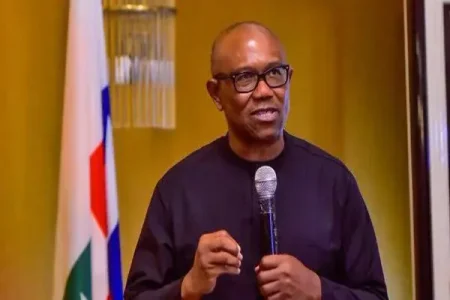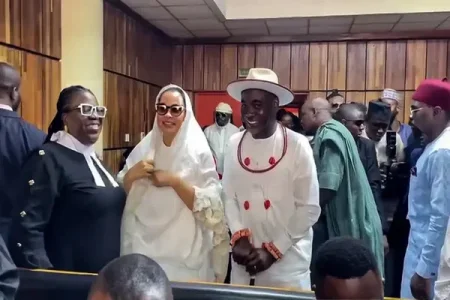In a surprising turn of events, the infamous 'Letter to America' penned by Osama Bin Laden in 2002 has resurfaced on TikTok, creating waves of controversy and sparking a flurry of reactions, particularly among young Americans. Despite its age, the two-page document, which serves as a manifesto behind the 9/11 attacks, has found a new audience on the popular social media platform.

Image Credit: Hamid Mir
The hashtag #lettertoamerica has garnered over 4.5 million views, reflecting the significant impact of this unexpected social media trend. TikTok users are sharing diverse reactions, with some expressing shock and others admitting to a profound shift in their perspective on life after reading the letter.
One user commented, "It's wild, and everyone should read it," while another shared, "I will never look at life the same, I will never look at this country (USA) the same."
The letter's accusations against the U.S., especially regarding its support for Israel and the perceived oppression of Palestinians, are central themes. Bin Laden justifies attacks on American civilians as a form of retaliation, blaming the U.S. for funding actions leading to the suffering of Muslims in Afghanistan and Palestine.
The Guardian's decision to remove the letter from its website on November 15, 2023, has fueled speculation and conspiracy theories, with some suggesting a deliberate effort to suppress information. The Guardian's statement provides no explanation for the removal, adding to the controversy surrounding the letter.
While some TikTok users express shock, criticism has emerged on social media against those finding merit in Bin Laden's letter. Some argue that such sentiments may be part of a trend manipulation campaign, while others dismiss the idea of uncovering "truth" in the letter as "ridiculous."
This unexpected resurgence of a decades-old letter highlights the complex interplay between historical events, social media trends, and public perception, raising questions about the responsibility of platforms in moderating content with controversial and historical significance.

Image Credit: Hamid Mir
The hashtag #lettertoamerica has garnered over 4.5 million views, reflecting the significant impact of this unexpected social media trend. TikTok users are sharing diverse reactions, with some expressing shock and others admitting to a profound shift in their perspective on life after reading the letter.
One user commented, "It's wild, and everyone should read it," while another shared, "I will never look at life the same, I will never look at this country (USA) the same."
The letter's accusations against the U.S., especially regarding its support for Israel and the perceived oppression of Palestinians, are central themes. Bin Laden justifies attacks on American civilians as a form of retaliation, blaming the U.S. for funding actions leading to the suffering of Muslims in Afghanistan and Palestine.
The Guardian's decision to remove the letter from its website on November 15, 2023, has fueled speculation and conspiracy theories, with some suggesting a deliberate effort to suppress information. The Guardian's statement provides no explanation for the removal, adding to the controversy surrounding the letter.
While some TikTok users express shock, criticism has emerged on social media against those finding merit in Bin Laden's letter. Some argue that such sentiments may be part of a trend manipulation campaign, while others dismiss the idea of uncovering "truth" in the letter as "ridiculous."
This unexpected resurgence of a decades-old letter highlights the complex interplay between historical events, social media trends, and public perception, raising questions about the responsibility of platforms in moderating content with controversial and historical significance.




